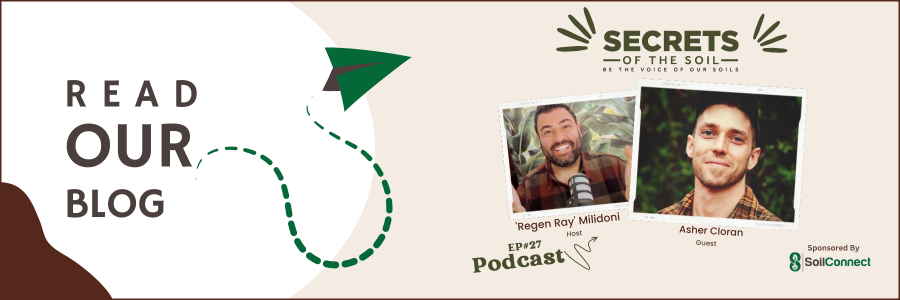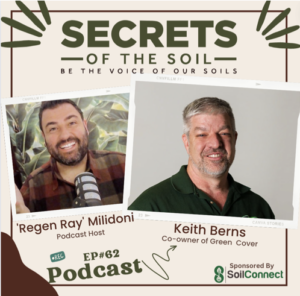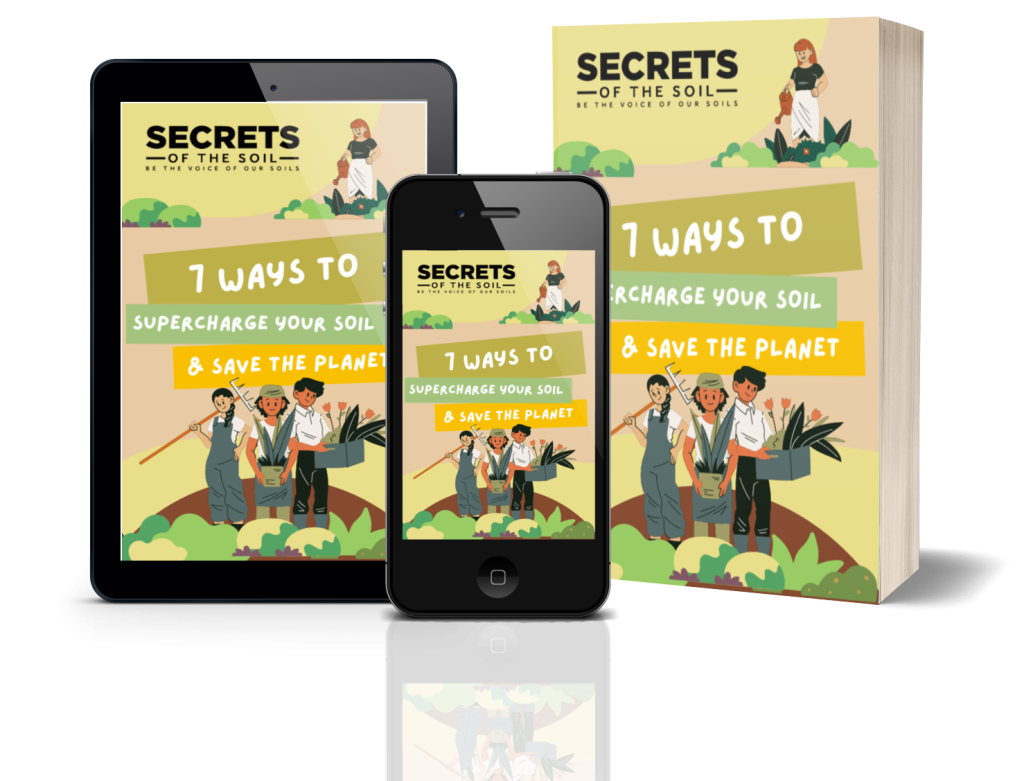🌱 Excited to share insights from the latest episode of the “Secrets of the Soil” podcast! In Episode 27, we were joined by the inspiring Asher Cloran to discuss why encouraging kids to connect with nature is more important than ever.
Here are three key takeaways:
– 🌿 Nature as a Classroom: Asher emphasizes how the sensory and experiential benefits of being in nature provide a potent learning environment, far superior in many ways to traditional indoor settings.
– 📚 Curiosity-Driven Learning: We delve into the importance of fostering curiosity in education, challenging the rote learning typical of mainstream education, and instead promoting exploratory methods that nurture a genuine love for learning.
– 🌍 Intergenerational Connection to Nature: The conversation highlights the critical role of adults in leading by example and fostering a passion for the environment in younger generations. Asher’s upcoming book and interactive board game aim to make soil education fun and engaging for kids.
🎧 Tune in to the full episode to explore these themes further and discover how we can all contribute to a more nature-connected educational approach.
Check out the resources provided by Asher and Life Rocks for more ways to bring the wonders of soil and nature to the forefront of children’s education.
Who is Asher Cloran?
Asher Cloran is a health, nature, and education entrepreneur who leads the company Life Rocks – a science education company aimed at connecting children to the magic of nature through discovery, interactivity, science, and art. Asher educates adults on working with Nature to create a better home, classroom, and family and creates resources with his teams like illustrated books, board games, and more to help ignite a passion for Nature in the younger generations.

In a recent episode of “Secrets of the Soil,” host Regen Ray Milidoni welcomed naturalist and educator Asher Cloran to discuss pressing issues in environmental education. Their conversation delved into the importance of encouraging children to connect with nature and the transformative power of hands-on, curiosity-driven learning. Here, we not only explore the highlights but also expand on these crucial topics.
The Path Less Traveled: Asher Cloran's Journey
Asher Cloran’s story is one of self-discovery and breaking free from conventional career paths. Realizing that university wasn’t for him, he began studying nature independently, eventually becoming a gardener. This journey threw him into the world of naturalist practices, ancestral skills, and spirituality.
“I realized that I could learn more from the natural world than any classroom,” Asher said. His experiences and mentors who embodied passion and curiosity left a profound impact, reshaping his views on education and the importance of real-world learning.
Nature as the Ultimate Classroom
One of the fundamental points raised during the episode was the need to prioritize curiosity-driven learning over rote knowledge. Asher and Regen Ray discussed how mainstream education often favors memorization over exploration, a practice that fails to cultivate a true love for learning.
“Kids naturally have a sense of curiosity. They love to explore, and we need to nurture that,” Asher insisted. This curiosity can be a powerful catalyst for engaging children in environmental education, particularly in understanding complex topics like soil health.
Sensory and Experiential Benefits
Nature offers unparalleled sensory experiences, which are vital for children’s cognitive and emotional development. Unlike indoor classrooms, the natural world stimulates all senses and provides endless opportunities for exploration and discovery.
“The sensory experiences from being outdoors, touching soil, and observing plants and animals create lasting connections,” Asher remarked. These experiences make learning more impactful and memorable, laying a strong foundation for future environmental stewardship.
Addressing the Broken Education System
Asher and Regen Ray critique the current education system for its lack of hands-on and experiential learning. Asher’s book, “The Soil Book,” and an interactive board game aim to fill this gap by providing engaging educational materials that promote a love for soil and nature.
“The goal is to make learning fun and interactive, using storytelling and creative methods,” Asher explained. These tools offer multiple avenues for learning, such as cognitive, kinesthetic, visual, and audio methods, ensuring that all children can benefit.
Redefining Soil Health
A significant part of their conversation tackled the evolving definition of soil health. Asher emphasized the need to see soil as a living ecosystem that requires empathy and collective responsibility. Biodiversity, water retention, and creating habitats for diverse plant and animal life are now seen as vital components of healthy soil.
“By changing our awareness about the details of life within soil, we can radically transform our approach to land management,” Asher pointed out, using Peter Is’ farm as an example of how this shift can lead to sustainable practices.
Beyond Education: Cultivating a Love for Nature
Both Asher and Regen Ray stressed the importance of mentorship in environmental education. Passionate educators can inspire children to develop a lifelong love for nature. “Children are incredibly perceptive; they imitate adult behaviors,” Asher said. Therefore, adults need to lead by example, demonstrating a conscious connection to nature.
Community and Connection
Building inner circles and communities centered around nature, as Asher has done through his interest in permaculture, can significantly amplify these efforts. “Community-driven initiatives can help spread these vital messages more effectively. It’s about creating a collective responsibility,” Asher noted.
The Future of Environmental Education
Drawing from their discussions, it’s clear that innovative tools like “The Soil Book” and the interactive soil kit are revolutionary steps in environmental education. These resources foster an early appreciation for nature, encouraging the next generation to be environmentally conscious.
Breaking Traditional Beliefs
The episode highlighted the need to challenge traditional belief structures and promote grassroots change rather than waiting for legislative shifts. “Our approach should be proactive, nurturing young minds to think critically about soil and environmental issues,” Regen Ray concluded.
As we navigate these complex challenges, it’s essential to spread the word and involve various stakeholders, from parents and teachers to policymakers. “Secrets of the Soil,” sponsored by soreconnect.com.au, remains committed to this mission, emphasizing that everyone plays a part in fostering a sustainable future.
In summary, Regen Ray Milidoni and Asher Cloran’s enriching discussion underscores the vital need to reconnect children with nature. By fostering curiosity, utilizing hands-on learning, and changing our approach to soil health, we can cultivate a new generation that cherishes and protects our natural world.






